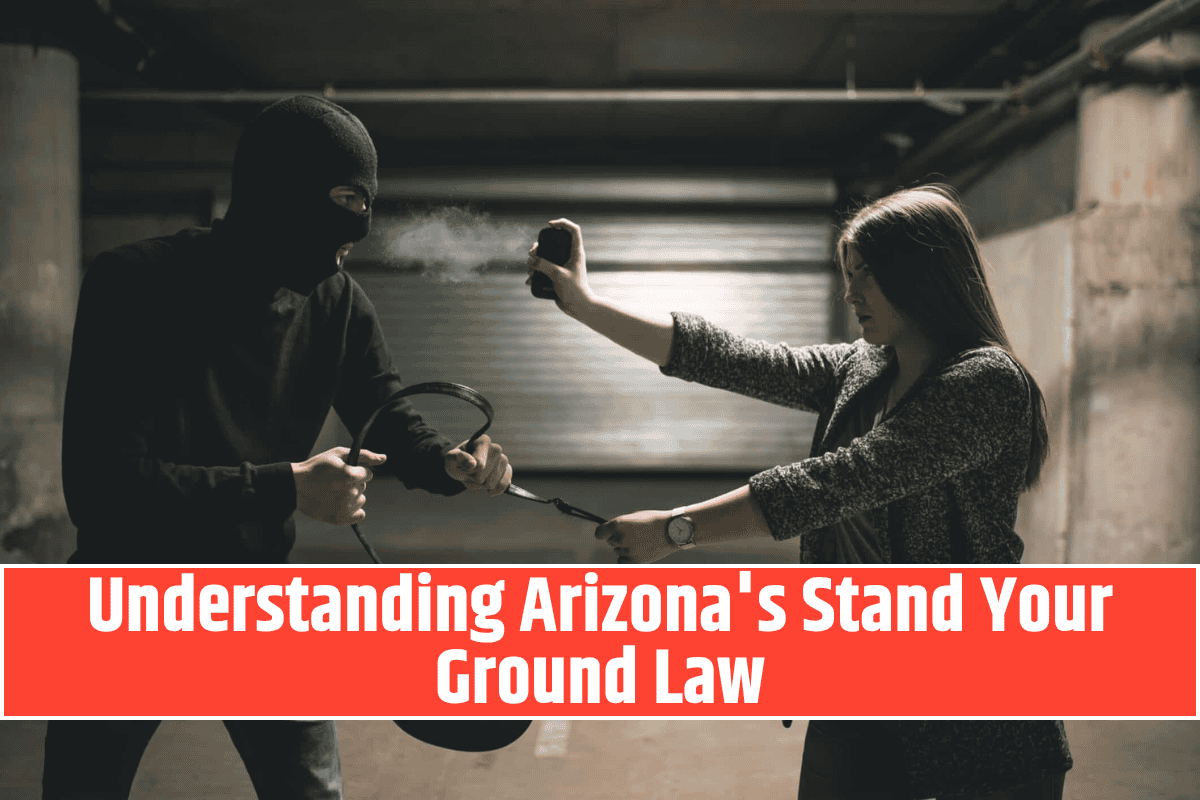Arizona’s self-defense laws provide important protections for individuals who feel threatened and need to defend themselves.
While the state does not have a law specifically called “Stand Your Ground,” its legal principles allow individuals to protect themselves without needing to retreat from a threat, as long as they are in a place where they have the right to be.
Understanding the key aspects of Arizona’s self-defense laws can help individuals know when they can legally defend themselves and others.
Lawyer Explains: Stand Your Ground in Arizona
Arizona’s legal system offers strong protections for individuals who must defend themselves. To claim self-defense in Arizona, two conditions must be met:
Reasonable Belief: A reasonable person in your situation must believe that using force is necessary to protect yourself from immediate harm.
Proportional Force: The amount of force used must be proportionate to the threat. For example, if someone slaps you, using deadly force would not be justified unless your life is in immediate danger.
These basic principles ensure that individuals can protect themselves, but the force used must be appropriate to the situation.
Overview of Arizona’s Stand Your Ground Law
Although Arizona does not have a specific “Stand Your Ground” law, the state’s self-defense laws function similarly. If you are in a lawful place and not engaged in illegal activity, you have the right to defend yourself using force, including deadly force, without the duty to retreat from a threat.
This means that, in situations where retreating is not possible or necessary, Arizona law allows you to stand your ground and protect yourself.
Arizona’s Self-Defense Laws: Key Points to Remember
Here are some important statutes that outline self-defense and the use of force in Arizona:
ARS 13-404: Justification; self-defense
You can use physical force to protect yourself if you believe it’s immediately necessary to prevent unlawful physical aggression. The force must be reasonable and proportional to the threat you face.
ARS 13-405: Justification; use of deadly physical force
Deadly force can only be used in extreme situations, such as when you reasonably believe your life is in danger or you are facing serious injury. Deadly force must be a last resort when no other option exists.
ARS 13-407: Use of Physical Force in Defense of Premises
This statute allows you to use reasonable force to prevent unlawful entry or attack on your home or premises. The force used must match the situation and should not exceed what is necessary.
ARS 13-408: Use of Physical Force in Defense of Property
Arizona law allows you to use reasonable force to protect personal property from theft or damage, but the force used must be proportional to the threat posed to your property.
ARS 13-411: Use of Force in Crime Prevention
This law extends the right to use force in preventing serious crimes such as arson, burglary, kidnapping, and sexual assault. The force used must be proportional to the severity of the crime being prevented.
In each of these statutes, the key concept is reasonableness: the force used must be proportional to the threat you face. Understanding these nuances is essential for justifying acts of self-defense or defense of property under Arizona law.
When Can You Legally Defend Yourself in Arizona?
In Arizona, you have the right to use force, including deadly force, to defend yourself or others when faced with an immediate threat. If you are in a lawful place and not engaged in any illegal activity, you can stand your ground and defend yourself.
The law ensures that individuals are not forced to retreat in the face of a threat but can protect themselves using appropriate force.
What Is Considered “Reasonable Force”?
The force you use must be appropriate for the threat you are facing. For example, if someone insults you, using violence in response is not justified.
Similarly, if someone pushes you, you cannot pull out a weapon unless you genuinely believe your life is in immediate danger. The force must always match the severity of the threat.
What to Do If You’re Charged After a Self-Defense Incident
If you find yourself charged after defending yourself, it’s crucial to remain calm and work with law enforcement to explain the situation clearly. In such cases, having an experienced criminal defense attorney by your side can help protect your rights.
Your attorney will be able to argue that your response was reasonable based on the circumstances, which is key to defending your actions under Arizona law.
Arizona’s Stand Your Ground Laws and Your Defense
Although Arizona does not have a law specifically titled “Stand Your Ground,” its self-defense laws offer similar protections. These laws allow you to defend yourself without retreating, as long as the force used is proportionate to the threat you face.
Understanding your rights under Arizona law is crucial to acting responsibly and legally in self-defense situations.












